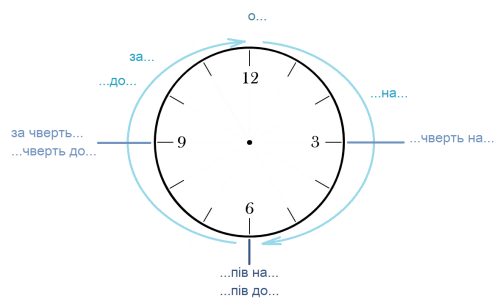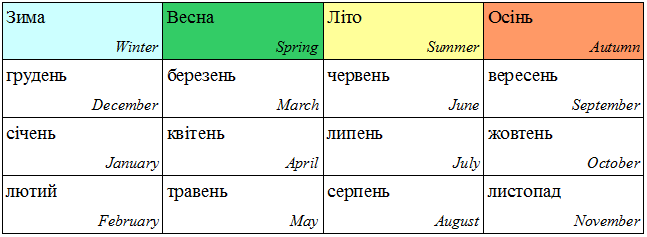The list of contents
Introduction to Ukrainian language: Alphabet.
Noun: Gender, Cases, Declensions, First declension, Second declension, Third declension, Fourth declension.
Adjective: General information, Declension, Degrees of comparison.
Verb: General information (forms of the verb).
Adverb: General information (types, degrees of comparison).
Preposition: Location and destination.
Numeral: General information, Basic cardinal numerals, Ordinal numerals, Declension and Few more rules (numerals + nouns).
Telling time: Seasons and months, Days of the week, Hours.
Pronoun: General information (nine groups of pronouns), Declension.
…
This list is updated as the new content appears.


